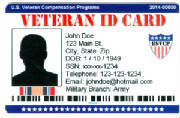|
|
|
|
|
|
FTC Issues Scam Alert July 5, 2016 The Federal Trade Commission (FTC) has issued a scam warning that is targeting veterans and seniors in disproportionate numbers across the country. The scammers are contacting veterans and seniors and racking up millions of dollars in the process. According to the FTC, if you receive a telephone call from an unfamiliar number you could be the victim of a scam. Here’s How The Scam Works Scammers are using auto-dialers to call cell phone numbers across the country. Scammers let the phone ring once — just enough for a missed call message to pop up. The scammers put all those eggs in one basket in the hope you’ll call them back, either because you believe a legitimate call was cut off, or you will be curious about who just called you. If you do, chances are you’ll hear something like, “Hello. You’ve reached the operator, please hold.” All the while, you’re getting slammed with some hefty telephone charges — a per-minute charge on top of an international rate. The calls are from phone numbers with three-digit area codes that look like they’re from inside the U.S., but actually are associated with international phone numbers — often in the Caribbean. The area codes include: 268, 284, 473, 664, 649, 767, 809, 829, 849 and 876. The FTC warns, if you get a call like this, don’t pick it up and don’t call the number back. There’s no danger in getting the call: the danger is in calling back and racking up a huge telephone bill. If you're tempted to call back, do yourself a favor and check the number through online directories first. They can tell you where the phone number is registered. If you’ve been a victim of the “one-ring” scam, try to resolve the charges with your cell phone carrier. If that doesn’t work, file a complaint with the Federal Trade Commission and the Federal Communications Commission.
Old Scam Technique With New Scam Power
The process of stealing your information for personal gain has never been easier and cheaper to pull off then it is right now. High-tech thieves are using much more powerful versions of identity scanners to steal your information with relative ease. According to Anti-Theft companies, stealing data from your credit card is accomplished very easy by using technologically advanced devices that can be purchased online for under $100. The crooks use the devices to steal your credit card information right through the air, with incredible ease and without you knowing it.
Over 150 million Americans are currently at serious risk. Unfortunately, millions have already felt the strain of being ripped off from a scammer using one of these new devices. Authorities believe millions more will be affected in the future. It’s not a matter of “if,” but “when.”
Without requiring a physical swipe, the device can collect account numbers, expiration dates, security codes and other information from cards that contain RFID chips.
Electronic pick-pocketing, or crowd hacking as it is referred to has been linked to millions of Americans being ripped off. If you have a "chipped" credit card, the chip can be scanned at stores, restaurants, sporting events, the airport, or as you sit in your automobile at a traffic light. The new scanners can reach outwards 25 – 30 feet to grab your information.
There are currently an estimated 250 million chipped cards in use in the U.S.
What to Do to Protect Yourself The BBB suggests cutting two pieces of cardboard the size of a credit card and wrap each with aluminum foil. Then place the chip-containing card between the foil-wrapped pieces to block data transmission from the scanners. Some people are finding success in purchasing wallets containing aluminum linings that block scanner transmissions. Also, visit YouTube and conduct a search on RFID protection. |
|
|
|
|
|
|

